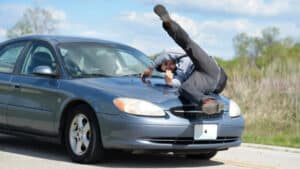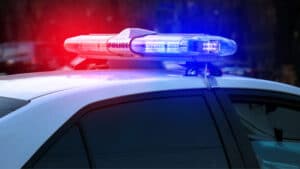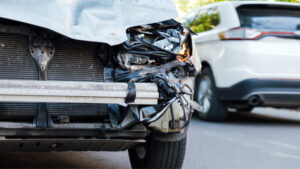Written By Christopher Dolan and Casey Hultin
This week’s question comes from William from the Bay Area: My friend rides a motorcycle and was recently injured when he was hit by a car. He believes the police officer who arrived at the scene was biased against him and didn’t even take his statement. He is worried that the police officer found him at fault. Is there some type of report he can get a copy of and if so, who writes them? How can he get a copy of his report? If the report puts him at fault, what can he do? Can he submit a supplemental report?
Great question William.
A traffic collision report is a form filled out by the investigating police officer at the scene. The form seeks basic information such as where the collision took place, the names of the people involved along with their contact and insurance information, the vehicles involved, any property damage, and any injuries. It will also generally include a summary of any statements taken at the scene or as part of the investigation, as well as the names of any witnesses interviewed about the collision. There may also be other additional scene investigation information, such as the locations of any cameras that may have caught footage of the incident or measurements for any debris or skid marks.
To obtain a copy of the traffic collision report, you must qualify as a party of interest in the crash. This generally includes drivers, passengers, vehicle owners, or a parent or guardian of an involved minor. You must complete and sign a request form for the information and provide the date of the collision (or approximate date), collision or incident location (as much information as you have if you do not have a specific address), the name of the driver or owner of one of the involved vehicles, and your name and address. There may also be a small fee. If you are represented by an attorney, your attorney can also help you obtain a traffic collision report.
If the traffic collision report places you at fault, it will likely make your injury claim difficult to resolve without filing a lawsuit. Insurance companies heavily rely on the traffic collision report when determining who is at fault for claim assessment purposes.
However, if the traffic collision report places you at fault, that does not mean any claim to injury is doomed. The conclusions in the traffic collision report are often not admissible at trial, meaning that the judge or the jury cannot consider it when deciding who is at fault for the collision. Further, through the litigation process and depositions (questioning witnesses before trial under oath), it is possible to get the officer to walk back the conclusions in the report. For example, often investigating officers do not have the benefit of canvassing for all possible witnesses at the time of the collision because they are dealing with many other competing interests, including making sure any injured people receive medical care and clearing the area for through traffic.
If you find additional information that the investigating officer failed to consider, you can contact that officer and provide the additional information to them. For example, if there is an additional witness the officer missed, you can call and provide that witness’s information so the witness can give a statement. If there are additional photographs, you can send them in as well. If there are inaccuracies in the report, you can point them out. All of these can lead to the officer amending and our supplementing the traffic collision report. You also have the option to get a formal dispute form from the Department of Motor Vehicles in the event the officer is not responding.
In practice, if the traffic collision report is inaccurate or comes to the wrong conclusion, while you can try to get the officer to author a supplemental report, you are better off navigating the circumstances through an experienced attorney. Especially because, as discussed above, the traffic collision report conclusion is not determinative of fault in a court of law.
We wish your friend a speedy recovery.










